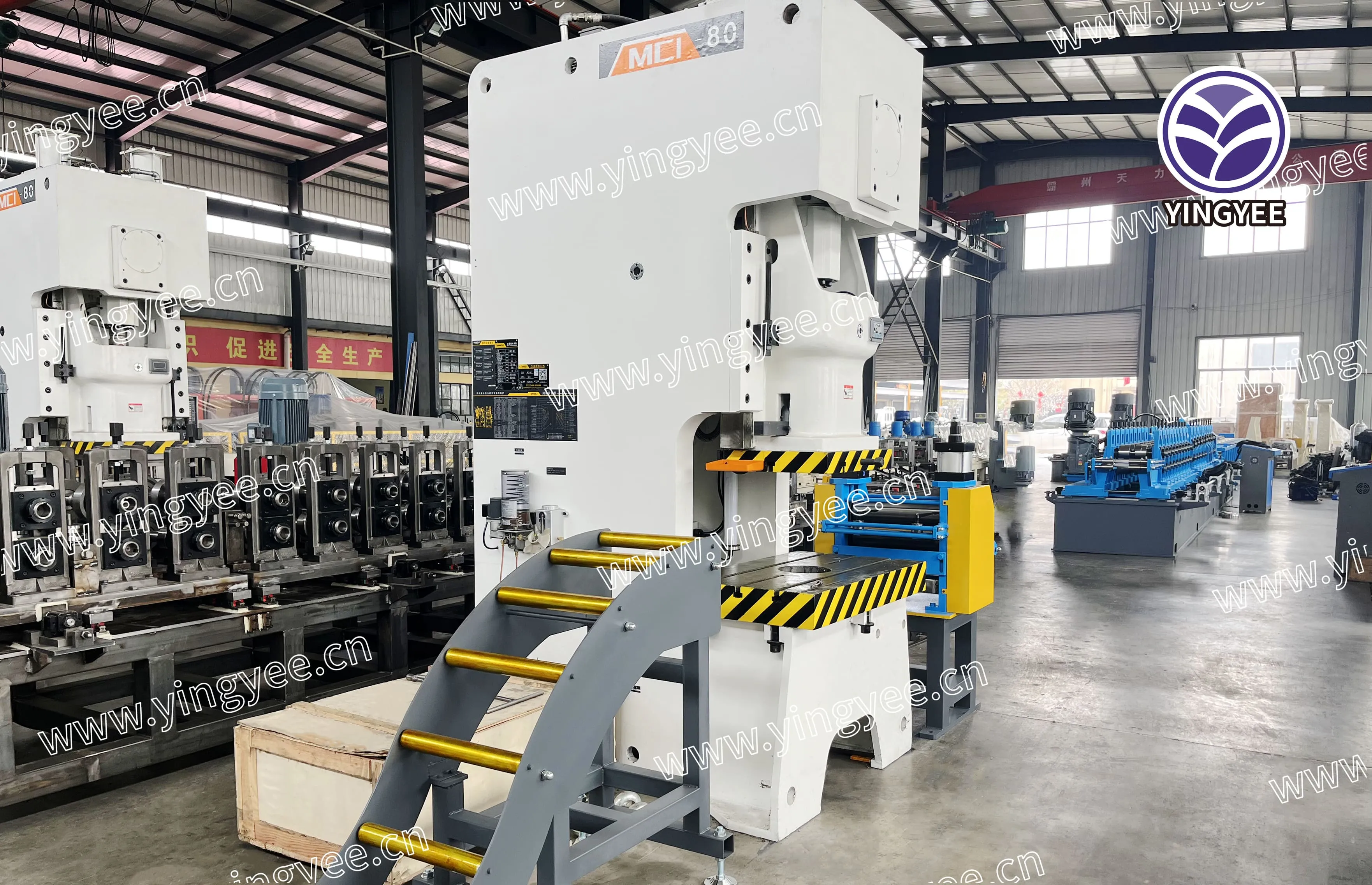
Understanding Rack Roll Forming Machines A Comprehensive Overview
In the ever-evolving landscape of manufacturing, efficiency and precision are paramount. One of the key technologies that have emerged to meet these demands is the rack roll forming machine. This specialized equipment offers a myriad of benefits, especially in producing components that are essential for various industrial applications. In this article, we will explore the intricacies of rack roll forming machines, their working principles, applications, and advantages.
What Is a Rack Roll Forming Machine?
A rack roll forming machine is a type of industrial machinery that specializes in creating racks, which are used in storage systems and various mechanical applications. The fundamental principle behind roll forming is to bend and shape metal sheets into desired profiles through a series of rollers. The process is continuous and can produce long lengths of material with consistent cross-sectional geometry, making it ideal for producing components like racks.
How Does a Rack Roll Forming Machine Work?
The operation of a rack roll forming machine involves several key steps
1. Feed Material The process begins with feeding a flat metal sheet or coil into the machine. The material is typically made of steel, aluminum, or other metals, depending on the desired strength and application.
2. Roll Forming Process The metal sheet is then guided through a series of rollers that progressively shape it into the desired profile. Each roller modifies the metal incrementally, ensuring precise bending without compromising the material's integrity. The number of rollers may vary based on the complexity of the profile being produced.
3. Cutting Once the desired length of the rack is achieved, the machine initiates a cutting process. Many rack roll forming machines are equipped with automated cutting systems that ensure clean and accurate cuts.
4. Finishing and Quality Control After cutting, the racks may go through additional processes such as coating, punching, or welding, depending on the final specifications. Quality control measures are essential to ensure that the finished products meet industry standards.
Applications of Rack Roll Forming Machines
Rack roll forming machines are instrumental in various industries, including

- Warehouse and Storage Solutions Racks are essential for maximizing space and organization in warehouses
. These machines produce customized racks that fit specific storage requirements.- Automotive Industry Many automotive components, such as structural supports and reinforcement racks, are manufactured using rack roll forming techniques.
- Electronics and Appliances Racks are often used for housing electronic devices and home appliances. Roll forming allows manufacturers to create parts that are both functional and aesthetically pleasing.
- Construction In construction, racks created by roll forming machines are used in frameworks and support structures, contributing to the overall integrity of buildings.
Advantages of Using Rack Roll Forming Machines
The incorporation of rack roll forming machines in manufacturing processes brings numerous advantages
- Cost-Effectiveness Roll forming is a highly efficient process that reduces material waste. The use of coils rather than individual sheets minimizes costs, and the continuous production method allows for high-volume output.
- Consistency and Precision The automated nature of roll forming ensures that every piece produced is uniform, maintaining tight tolerances and high-quality standards.
- Customization Modern rack roll forming machines can be easily adjusted to create various profiles, allowing manufacturers to meet unique customer requirements without significant downtime.
- Durability The materials used in rack manufacturing through roll forming are often more robust than those created by traditional manufacturing methods. This durability makes them suitable for heavy-duty applications.
Conclusion
Rack roll forming machines represent a significant advancement in manufacturing technology, offering efficiency, precision, and flexibility. Their ability to produce high-quality racks for various applications makes them indispensable in today's industrial landscape. As industries continue to seek innovative solutions for storage and structural needs, the role of rack roll forming machines will undoubtedly grow, paving the way for enhanced productivity and design capabilities. Embracing this technology not only streamlines production processes but also contributes to a sustainable manufacturing ethos by reducing material waste and improving overall performance.